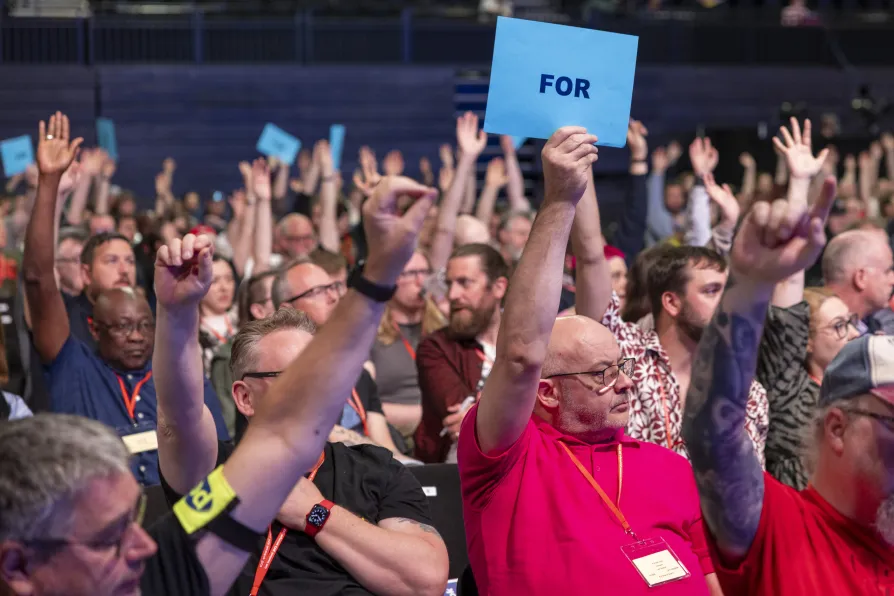
 Pic: Andy Aitchison/PCS
Pic: Andy Aitchison/PCS
CIVIL SERVANTS voted for a 10 per cent pay rise and to begin strike preparations for a £18 per hour minimum wage yesterday.
Britain’s biggest civil service union backed proposals to increase its national pay claim from the £15 per hour it had previously demanded during an urgent motion at their annual conference in Brighton.
Public and Commercial Services (PCS) deputy president Bev Laidlaw said: “If there’s no progress on our demands by mid September, the full resources of the union must be mobilised in order to have a new ballot mandate for industrial action capable of winning.”
The emergency motion was called in response to Chancellor Rachel Reeves’s Spring Statement, which cut 15 per cent from administration budgets.
Chancellor of the Duchy of Lancaster Pat McFadden also announced 1,200 job cuts in the Cabinet Office last month, as hundreds of quangos face potential closure in a government review of arms length bodies.
“That’s not just numbers on a spreadsheet, it’s jobs, it’s services and it’s livelihoods on the line,” she said.
“These cuts by Pat McFadden say they are about being leading by example, if this is leadership it is one that leads to greater insecurity and disrespect.
“Let’s be clear, this Labour government is preparing a major assault on the Civil Service, from job cuts to pay restraint, from hybrid working to places for growth … this government has taken a hard line on every stance with us at every turn.”
Ministers have also submitted evidence backing a 2.8 per cent pay rise for civil servants to their pay review bodies, delegates heard.
This is “well below” estimates that inflation will rise to 3.7 per cent in the third quarter of 2025, said the union leader, adding research shows that Civil Service pay has fallen between 15 and 38 per cent since 2010.
Ms Laidlaw said: “In some cases real wages are back to where they were 20, even 40 years ago. Pay rises of 18 to 26 per cent will be needed just to catch up.”
Acknowledging the work needed to rebuild support for the union’s pay demands, she added: “This motion sets out a clear plan for this.”
The union also opposed the “tap on the shoulder” method for selecting people to leave the Civil Service.














